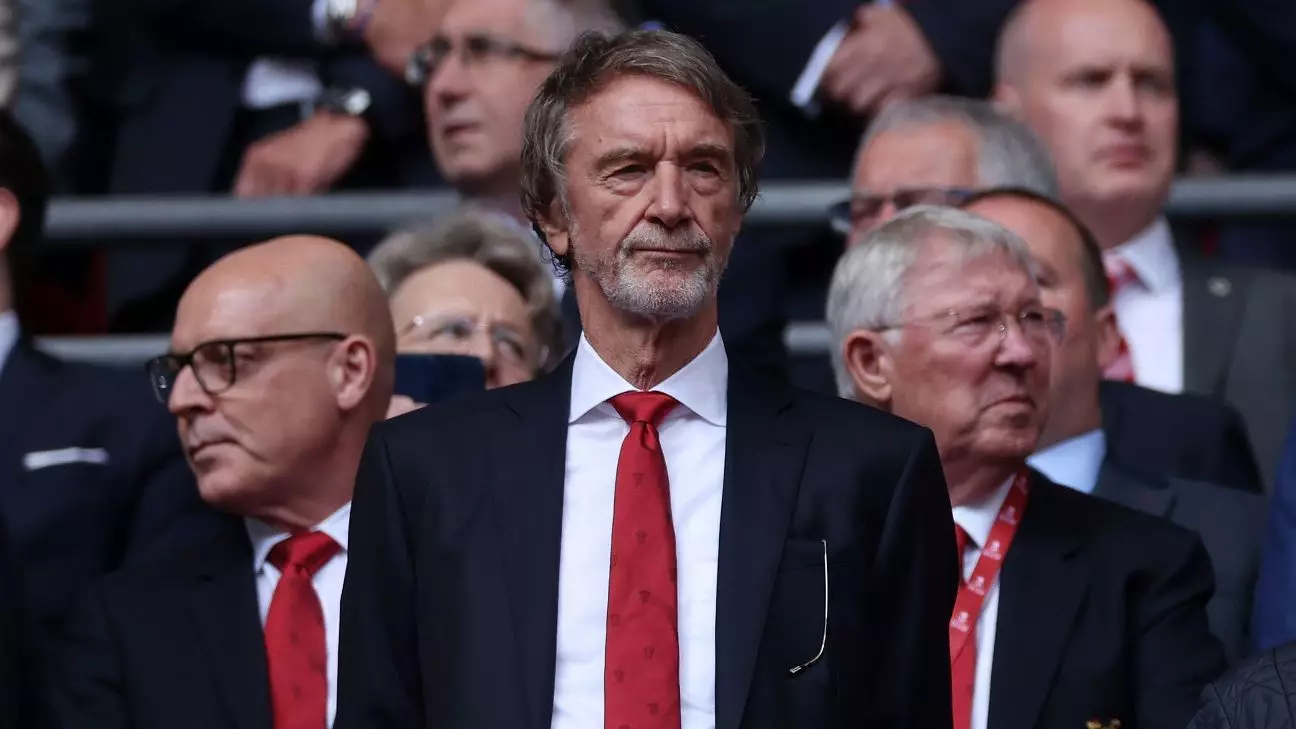Sir Jim Ratcliffe, the co-owner of Manchester United, has recently expressed frustration with UEFA’s rules regarding multi-club ownership. This frustration stems from the fact that these rules have hindered the club’s ability to sign a player from Ligue 1 side Nice, a club that is also owned by Ratcliffe’s company, INEOS. While it is not explicitly forbidden for two clubs with the same owners to trade players, the issue arises when both clubs are set to participate in a UEFA competition, such as the UEFA Europa League. UEFA guidelines prohibit any individual or legal entity from having control or influence over more than one club participating in a UEFA club competition. Control is defined as the ability to exert decisive influence in the decision-making processes of the club.
In a recent interview with Bloomberg, Ratcliffe expressed his frustration at the restrictions imposed by UEFA. He revealed that while they are allowed to sell a player to another Premiership club, they are prohibited from selling to Manchester United. This limitation not only affects the business interests of the clubs but also raises concerns about the welfare of the player in question. Despite these challenges, sources have confirmed that Manchester United has chosen to retain Erik ten Hag as the manager for the upcoming season. Ratcliffe, however, seems to be more focused on creating a conducive environment at the club rather than making significant personnel changes. He believes that establishing a competitive yet supportive atmosphere is crucial as the club aims to reclaim its position at the top of English and European football.
Ratcliffe’s stance on the issue of club ownership regulations is further highlighted by his support for Manchester City in their legal battle against the Premier League’s Associated Party Transaction rules. These rules, introduced in response to the Newcastle United takeover, aim to regulate clubs’ sponsorship deals with entities related to their owners. Ratcliffe commended Manchester City for challenging the regulations, emphasizing the importance of a free and open market in football.
The upcoming UK general election has sparked discussions about potential regulatory measures in football. The Labour Party has pledged to introduce a new football regulator if they come into power, with the aim of curbing excessive spending by clubs and protecting the interests of fans. Ratcliffe, however, has voiced his opposition to such legislation, expressing concerns about the implications of government intervention in football. Additionally, he criticized the concept of “anchoring” that Premier League clubs are set to trial in the upcoming season. This system limits spending based on a team’s projected earnings from prize money and TV rights, potentially impeding the growth and competitiveness of top clubs in the Premiership.
UEFA’s rules on multi-club ownership have presented formidable challenges for Manchester United’s transfer activities. The restrictions imposed by these regulations not only hinder the club’s ability to conduct business effectively but also raise concerns about the well-being of players caught in the crossfire. As the club navigates through these obstacles, the support of key stakeholders like Sir Jim Ratcliffe becomes crucial in shaping the future trajectory of Manchester United in the competitive landscape of European football.

Leave a Reply